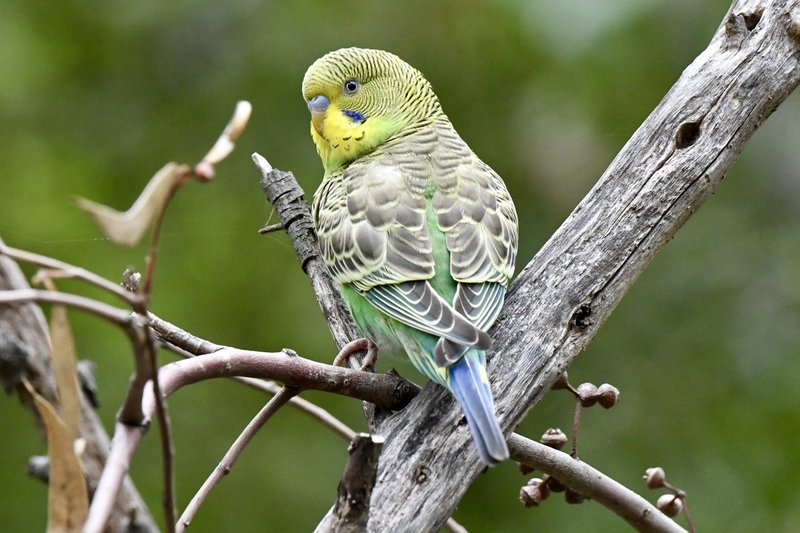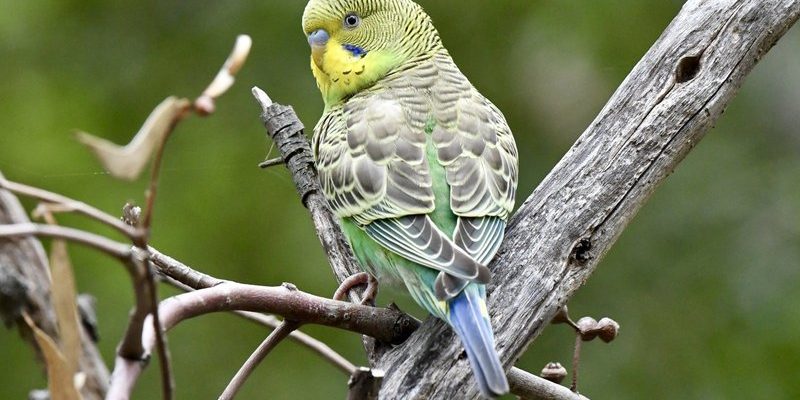
Let me share a few fascinating tidbits about budgies—known officially as budgerigars. These birds have captured the hearts of many as pets, and their behaviors and characteristics can delight and surprise even seasoned bird owners. Without further ado, here are ten things you might not know about these lively little avians.
1. Budgies Come in a Rainbow of Colors
You might think of budgies as primarily green and yellow, but here’s the thing: they actually come in a vast array of colors! In the wild, budgies are most commonly green, but those bred in captivity can be seen in shades of blue, white, yellow, and even purple.
Each color is determined by genetics, and some combinations can create stunning patterns. For instance, a budgie with a cobalt blue base and white markings can be incredibly striking. If you’re considering getting a budgie, think about what colors you find most appealing. It adds a whole new dimension to choosing your feathered friend!
2. They Can Learn to Talk!
Did you know that budgies are among the best talking birds? Honestly, they can learn a decent vocabulary if you spend the time training them. This is especially true for male budgies, which tend to be more talkative than females. Just like teaching a dog a trick, you can teach a budgie to mimic words and phrases.
Start by saying simple words consistently. Using a cheerful tone can make a big difference. You might find it amusing when your budgie surprises your friends by repeating “hello.” It brings a whole new meaning to having a conversation partner, doesn’t it?
3. They’re Social Creatures
Budgies are not lone wolves; they thrive on social interaction! In the wild, they live in large flocks, and this social nature continues even when they’re in your home. If you’re thinking about getting a budgie, consider getting a pair. They keep each other company, play, and even groom one another.
You might be wondering what happens if you only have one. While a solo budgie can be happy, you’ll need to be more involved in their social life. Make time for daily interaction and playtime. Trust me, your budgie will appreciate your effort and keep you entertained with their antics!
4. Budgies Have Unique Personalities
Each budgie has its own personality, just like humans! Some are more adventurous, eager to explore their surroundings, while others are more reserved and prefer to stay close to their owners. You might notice your budgie has its own quirks—perhaps it dances when it hears music or loves to play with certain toys.
Observing these different traits can be a joy. Spend time getting to know your budgie’s personality. It can be quite rewarding to see how they respond to different stimuli and interact with their environment.
5. They Need Mental Stimulation
Just like us, budgies can get bored. If they don’t have enough mental stimulation, they may develop bad habits, like excessive screeching or feather plucking. Here’s the thing: keeping a budgie happy involves creating an engaging environment filled with toys, puzzles, and opportunities for exploration.
Consider rotating their toys regularly, so they don’t get bored with the same old playthings. Simple things like cardboard boxes or swings can entertain them for hours. After all, a happy budgie is a healthy budgie!
6. They Mimic Sounds Beyond Speech
Talking isn’t the only thing budgies are good at; they’re also fantastic at mimicking sounds from their environment! You might hear them copy the beep of a microwave, the sound of your phone ringing, or even your laughter. It’s like having a little entertainer in your home!
This ability to mimic isn’t just fun; it also shows their intelligence. They have good hearing and learn through association. So, if you have a specific sound you want them to mimic, play it repeatedly and reward them for their efforts.
7. Their Lifespan Surprises Many
You might be surprised to learn that budgies can live quite a long time! With proper care, they can live anywhere from 10 to 15 years or more. That’s a significant commitment!
To ensure your budgie lives a full and happy life, focus on providing a balanced diet, a spacious cage, regular vet check-ups, and plenty of social interaction. Think of it as being a long-term companion—with all the joys and responsibilities that come with it.
8. Budgies and Their Diet
A healthy diet is crucial for a budgie’s well-being. Many owners stick to seed mixtures, but here’s a tip: budgies also need fresh fruits and veggies! Offering a variety can prevent nutritional deficiencies.
Consider introducing small amounts of leafy greens, carrots, and fruits like apples or berries. Just be sure to avoid avocado, which is toxic to birds. It’s a bit like cooking for a picky eater—you’re trying to balance what they love with what’s good for them!
9. They Communicate Through Body Language
Budgies are not only vocal; they also express themselves through body language. Learning to read these cues can enhance your bond. For example, when a budgie ruffles its feathers and stretches, it’s likely feeling comfortable. But if they puff up and appear agitated, they might need some space.
By paying attention to these signs, you can better respond to their needs and enhance your relationship with your feathered friend. Observing their cues adds another layer of connection; it’s like understanding a new language!
10. They’re Easy to Care For, But Not Careless!
Though budgies are relatively low-maintenance compared to some pets, they still require dedicated care. Regular cleaning of their cage, providing fresh food and water, and spending quality time together are essential.
Here’s the thing: while they may be small, they have big needs! Keeping your budgie healthy and happy isn’t just about feeding them; it’s creating an environment where they can thrive. Think of it as being a responsible caregiver—they thrive when nurtured properly.
In closing, budgies are as fascinating as they are charming. Each little personality adds richness to our lives, and learning about their needs and behaviors can make your experience as a budgie owner even more rewarding. So if you’re thinking about welcoming one into your home, buckle up for a delightful journey with your new feathery friend!

